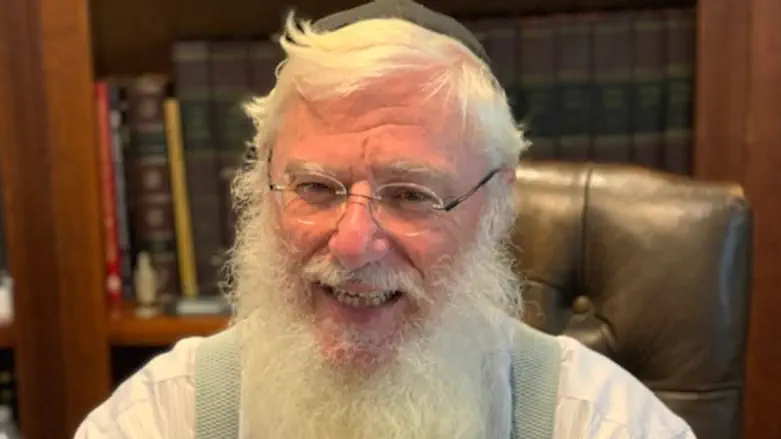
On Friday night, a Jewish holiday called Sukkoth will be celebrated. This holiday marks the Jewish people's wandering in the desert for 40 years after their exodus from Egypt before they entered the Holy Land. It was during that time, some 3,300 years ago, that the people lived in temporary huts called sukkahs.
Today we Jews commemorate the historic journey by erecting little huts covered with palm branches or bamboo poles. Many will eat their meals or even sleep in their sukkahs. Celebrating the Holiday under the stars...
I remembered the excitement as Sukkoth approached when I was growing up in the heavily Orthodox hassidic community of Williamsburg in Brooklyn, New York. The streets of Williamsburg were bustling with life and a festive mood. The highlight was finding a place and building the frail sukkahs.
I remember walking down the main street, Lee Avenue, admiring the many sukkahs. Some were built on roofs some in courtyards and others were built on sidewalks in front of stores. But the most famous ones were those that were built on fire escapes. They would protrude, hanging on the outside of the old buildings. Those sukkahs were simple, four feet by four feet and five feet high, just big enough for one person to go in and say a prayer and grab a bite of food.
Things would get real interesting when the Fire Department inspector came by demanding that the sukkahs be removed, as they were fire hazards.
Many times the Yiddish-speaking tenant did not know English and wouldn't comply with the fire inspector's request. Other times the tenant said it was Yom Tov, a holiday, and he couldn't take the summons. One fire inspector gave a tenant 10 days to remove the sukkah or go to jail. That worked fine as the holiday lasts for eight days (and one does not have to eat in the sukkah the last day as it is a separate holiday called Shmini Atzeret)..
After that incident, the Jews in Williamsburg would begin building their sukkahs on fire escapes a day before the holiday, giving them a window of one day to remove them and celebrate the holiday.
We would eat, sing and dance in the sukkahs. Sometimes unfriendly neighbors would throw fruit at the sukkah, and it would land right in the soup. So were the challenges of the holiday. Maybe the festive noise upset them.
Sharing a sukkah also meant finding out how other American Jews lived and celebrated the holiday. When the neighbor who lived above us needed a sukkah he would bring his meal and eat in my Zadie's (grandfather's) sukkah. Our neighbor lived a real American-style family life. Zadie belonged to an old- fashioned hassidic world.
You can imagine how Zadie viewed the neighbor's eating habits. They came into the sukkah with a big red bottle of ketchup. Zadie nearly had a fit. He felt that things like ketchup and mustard were from the hot dog stand mentality and not for a religious Jewish boy to see. He was aghast when he saw food like beer, hot dogs and potato chips being put down on his sukkah table.
The songs were also different, as the Americans sang soft Yankee Doodle Dandy tunes while the Hungarian hassidim sang in a frenzy, clapping and dancing. Zadie never said a word to them, as it is a mitzvah (commandment) to share. It was only after they left he would warn me not to follow in the ways of modern American Jewry.
Zadie liked to decorate the sukkah. We would hang up fruit from Israel or braided chains throughout the sukkah. As children we had loads of fun playing games to see who could make the longest paper chain. When the sukkah was decorated Zadie looked like a king as he entered it wearing his streimel - a hassidic fur hat, and tish beckesher - a special silk or satin tobe cum housecoat worn only on Shabbos, and Yom Tov. When he came into the sukkah he would be in the happiest mood.
Toward the end of the day the problems would begin. Some of the fruit began to fall off, landing on our heads, and the chains fell apart. Sometimes during Sukkoth it rained, ruining the holiday spirit.
One year Zadie told us, "Enough with the arts and crafts, the sukkah is holy enough." And that was that.
The message of the sukkah is universal. It reminds us to rely on God for protection, as the sukkah is no fortress, providing no solid roof over our heads. It also reminds us that life on this earth is but a temporary dwelling.
On going pandemic, fires, riots, and political conflicts remind us of the frailty of humankind.
True, we can fly to the moon and Mars but we cannot guarantee ourselves a safe dwelling.
The Holiday of Sukkoth symbolizes our need for tolerance, healing, hope, and peace. It would be great if we treated the world as a Sukkah and relied on God for cover, for it is really God who provides protection and safety for the world.
Wishing you a joyous Sukkoth
Rabbi Eli Hecht is Director and Founder of Chabad of South Bay, Lomita California, former President Rabbinical Council of California, and Vice President of the Rabbinical Alliance of America.